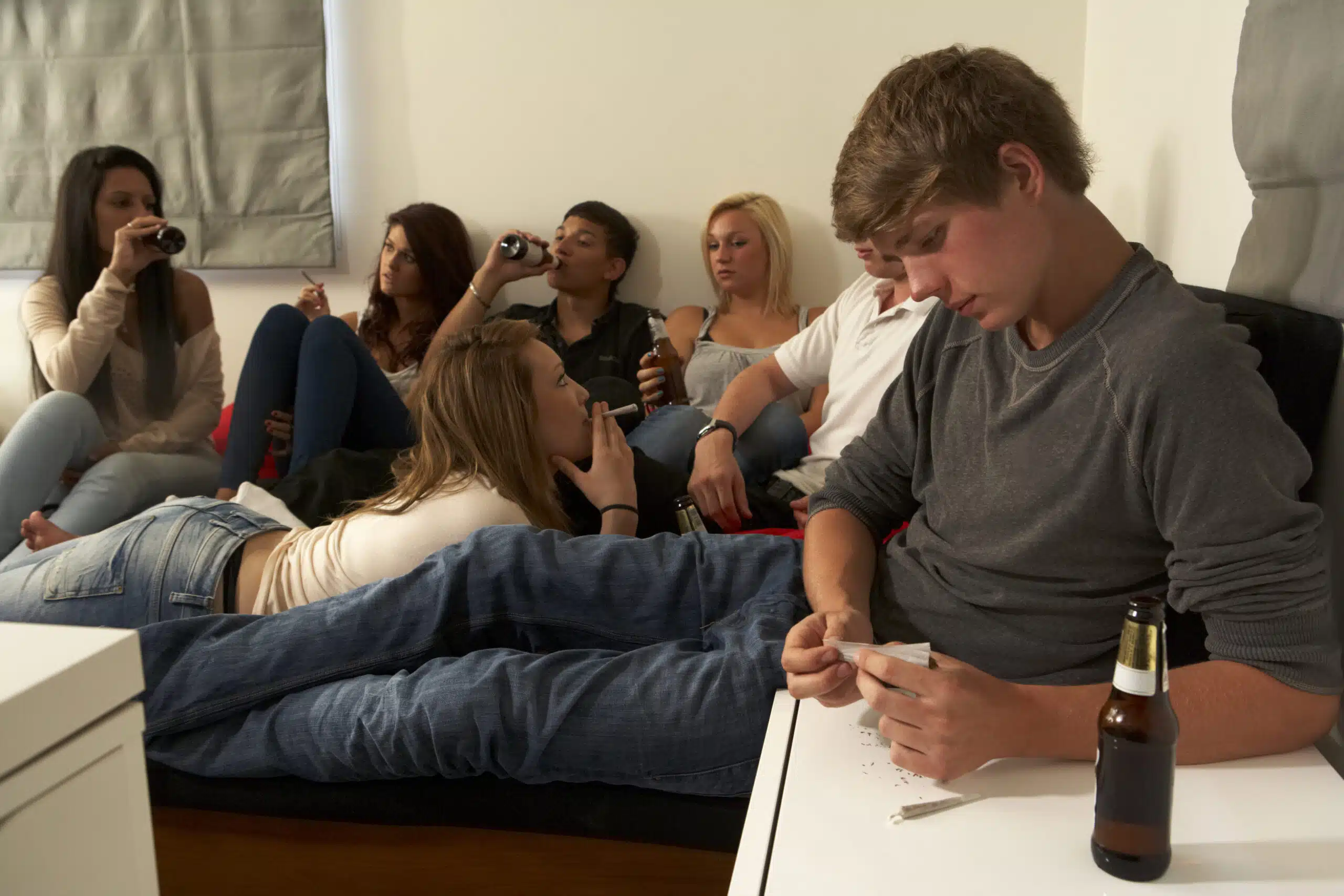
What to Look for In Depression Treatment
Depression is a serious and possibly debilitating mental illness that affects approximately 20% of teens in the United States. Unfortunately though, only 30% of teens who are suffering from depression actually receive treatment. If left untreated, negative thoughts and emotions can lead teens with depression to even take their own lives. Statistics show that every 100 minutes, a teen in the United States commits suicide.
These figures are staggering especially when depression in teenagers is a treatable mental health issue. It may sound logical then that all teens should be treated for depression at the first sign. Yet, this is not the case. Why?
According to a study conducted by Jean Twenge, a psychology professor at San Diego State University, teens today are faced with greater pressures, challenges, and triggers than adolescents were 50 or 100 years ago. Therefore, the number of teens who are experiencing depression has greatly increased over the years, taking mental health experts and parents by surprise.
As parents, we often strive to give our children more than what we were afforded in life. We try to give them a better life and to experience less pain and suffering. But, have we then set unrealistic expectations and caused more stress for them? Are parents placing unnecessary burdens on young people to achieve and succeed from an earlier age? Are the busy lifestyles, lack of social interaction and environmental factors causing teens to experience mental health issues?
All of these things can certainly be true! However, regardless of how the world has changed in the last several decades or the difference between our own childhood and that of our children, depression is a problem that must be addressed if we want our children to live happy, healthy lives. It is no longer something that can be swept under the rug or ignored as the elephant in the room. Depression for too long has been stigmatized causing many young people to hide their depressive states and avoid getting the treatment that they so desperately need.
Unfortunately, depression will not simply go away on its own and requires treatment by mental health professionals like those at Beachside Treatment Center. If your teen is displaying any signs or symptoms of depression, it is critical that you seek treatment for them immediately. Do not delay! Contact your child’s pediatrician for an evaluation and referral to a facility that is equipped to handle your teen’s diagnosis and provide them with a treatment plan that is right for them.
Now, for many parents, this is unfamiliar territory. You want to do what is right for your teenager. You may be plagued with the stereotypes and stigmas associated with depression and most certainly, you are terrified for your child’s life and health. There is no debating that proper diagnosis and treatment for depression can be the difference between life and death which makes the decision for identifying a quality treatment program that much more important.
According to www.teendepression.org, “80% of teens with depression can be successfully treated if they seek the right help. Teen depression doesn’t have to mean a lifetime of struggle, and it certainly doesn’t have to end in suicide.”
Does My Teen Have Depression? – Take Our Free Test Today
Things to look for in a quality treatment plan for your teen
With the increase in those who experience mental health issues over the years, fortunately, the number and type of treatment facilities have also increased. That being said, treatment for depression is NOT a one size fits all solution. The needs of one teen may be very different from that of another and with the help of your teen’s pediatrician, you can make the decision that is best for your teen and family.
With all of the options available, it can make the process of selecting the right one for your teen overwhelming and difficult. To help you identify the rehabilitation center that will be the right place for YOUR teen, we have put together several key factors that you should take into consideration to help you to make a decision.
- Mental health professionals are the right place to start. Your teen’s doctor may be able to refer you to several professionals who will help to determine the appropriate diagnosis for your teen as well as to help establish your teen’s goals for treatment.
- Treatment Center. Based on your teen’s diagnosis and goals, you will then be referred to several options in mental health treatment centers. Be sure to look at the facility’s reviews, recommendations, and even consult with former or current patients if possible.
- Success. While every teen’s depression is different, you want to place your teen in the best possible position to succeed and to learn the skills necessary to manage their mental health issue. The treatment center and staff must be the right fit so that your teen can gain maximum effects from their treatment plan.
- Inpatient versus outpatient. An inpatient program is one in which the teen will live at the treatment center for the duration of their treatment plan. You must consider the location of the center to ensure that you and your family can travel to/from the facility as needed. Family therapy will be an important part of the treatment process so the inpatient program should be close enough for you to travel to. On the other hand, an outpatient program is one to which the teen travels every day for their therapy sessions and activities. Again, location will be a key factor in determining the best place for your teen to receive treatment.
- Specialty. While you might think that every facility can treat all mental health disorders, this may not necessarily be the case. Be sure to research if a particular facility specializes in teen depression to offer your teen the best possible opportunity to succeed. It is important to note that a diagnosis of depression may also include other issues such as substance abuse, anxiety disorder, or Obsessive-Compulsive Disorder, all which may play a role in your teen’s treatment plan.
- Treatment options. There are many different treatment models and plans each with varying opinions on effectiveness and success rate. Speak to your teen’s therapist and medical doctor to determine the type of therapy that is recommended for recovery. Since not every method will be beneficial for your teen or offered at a particular facility, it is important to appropriately match therapy options with the diagnosis and needs of your child. Be sure to evaluate the many options including individual and group therapy, and medical management.
- Complementary therapies. Many facilities offer complementary therapies to assist in the recovery process such as yoga, meditation, animal-assisted therapy, art and music. Each of these is designed to accommodate a teen’s individual learning style and needs and may determine how your teen responds to their specific treatment plan.
- Accreditations. While just about anyone can open a treatment center, you want to ensure that your teen is receiving treatment from trained medical professionals in a fully accredited facility.
The road to recovery from mental illness is going to be a long one. It will require a lot of hard work, dedication, commitment, and love. While it will be your teen’s job to focus on their recovery, you and your family will be responsible for providing the much-needed involvement, support, and most importantly, hope. This process can be made that much easier by selecting the right treatment facility, with the right therapists and psychologists to meet the needs of your teenager. Don’t allow public opinion, stereotypes or even fear for that matter persuade you to do anything other than what is right for YOUR child!
The trained mental health professionals at Beachside Treatment Center can be the resource that your teen needs to get them on the road to recovery. Ask your pediatrician about the facility, the experience of our staff, the treatment options offered, and of course, the care that you should expect that your child will receive.
The reality of depression is that it is not just an individual’s issue but rather a teen’s depression impacts the entire family. At Beachside Treatment Center, the trained professionals are not only concerned about the mental health and overall well-being of your teen who is suffering from depression but they have the best interests of the entire family in mind. Through a variety of therapeutic options, including in-patient and out-patient services, your teen’s team of mental health professionals will develop a treatment plan specifically designed with their diagnosis, goals and needs in mind.

In a supportive environment like what is offered at Beachside Treatment Center, your teen will have the opportunity to become change agents in their life, to bring back the sense of self-determination and empowerment that depression has been stolen from them, and return to their life feeling accepted and loved.




